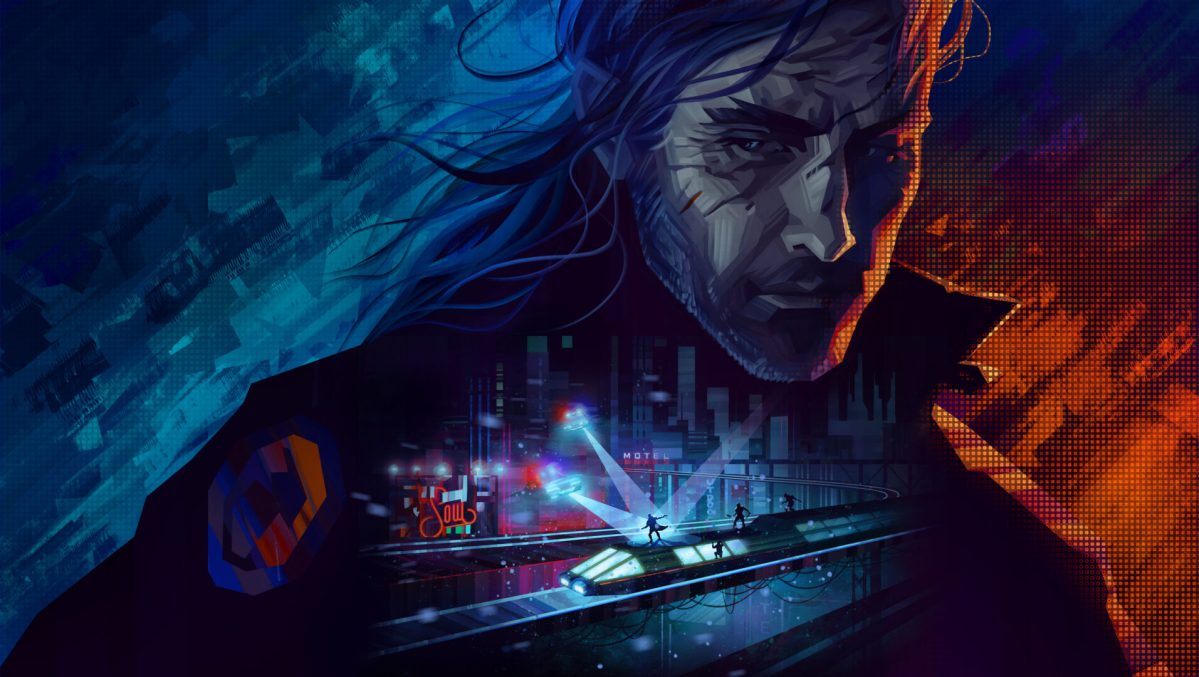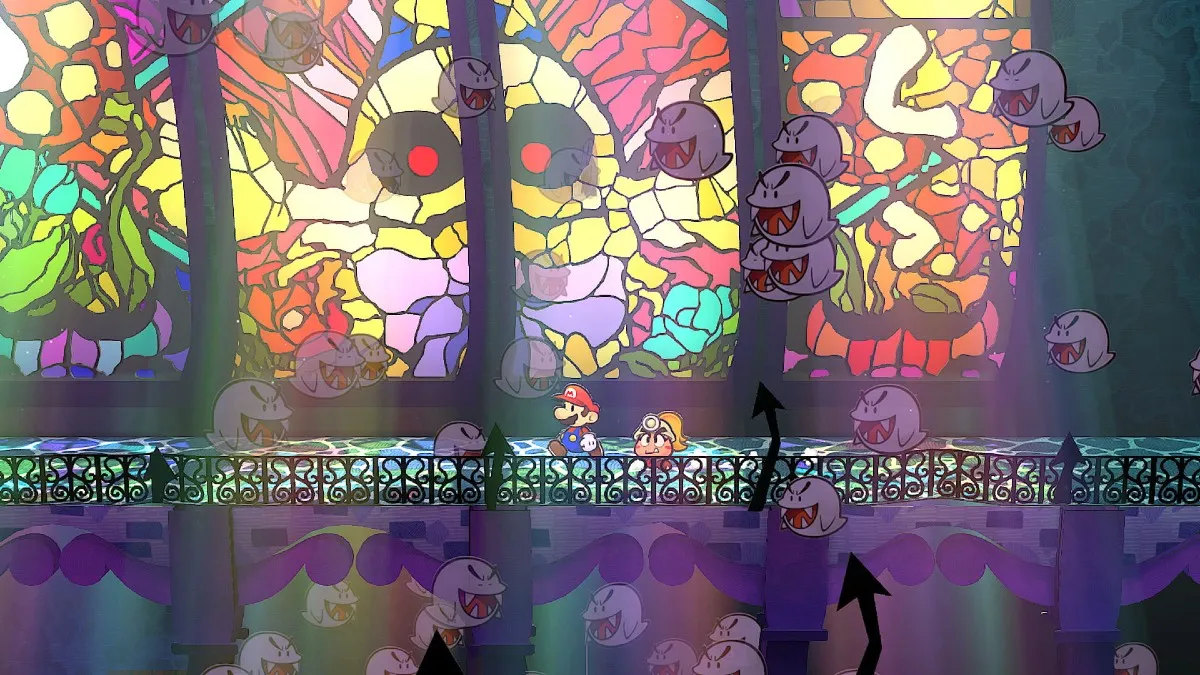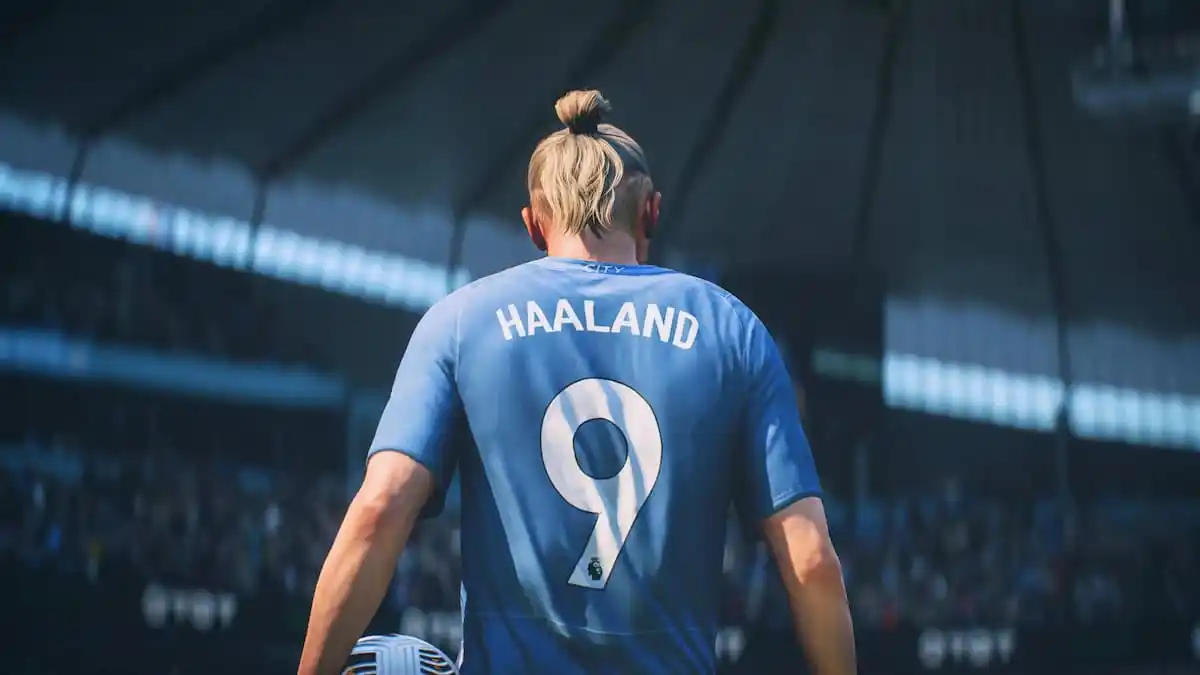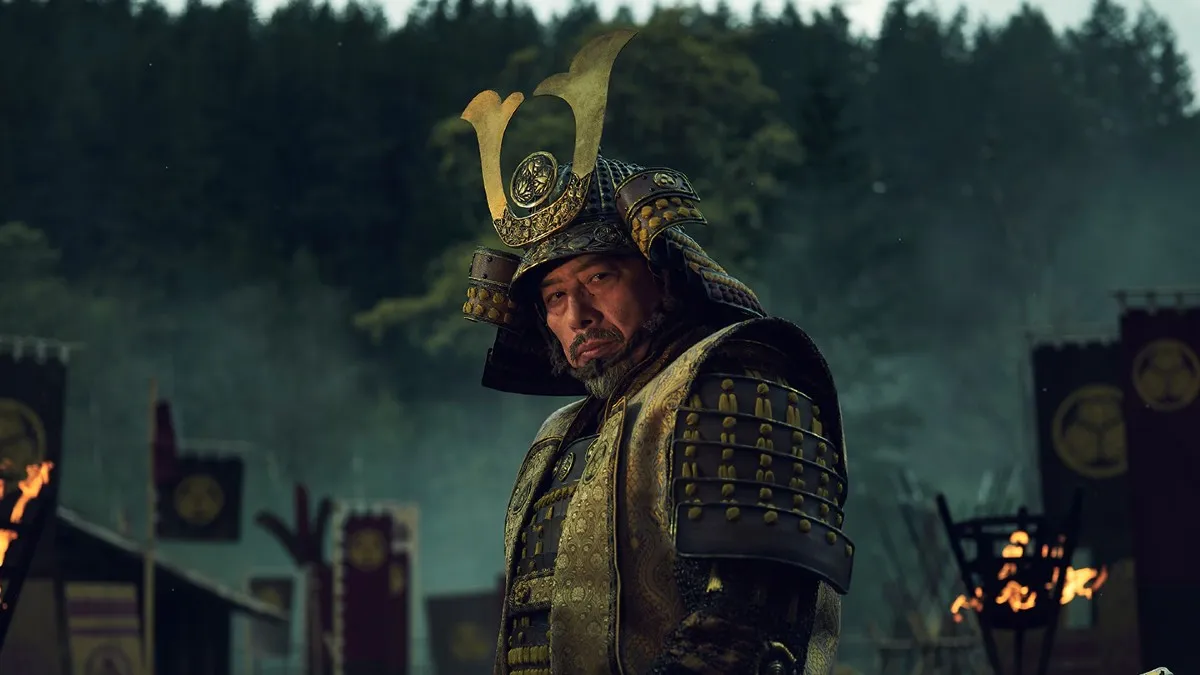REPLACED made a big splash at E3 2021, and for good reason — the upcoming cinematic platformer oozes cool, from its gorgeous 2.5D pixelated art aesthetic to the promise of a thrilling cyberpunk story set in a grim dystopia. The brilliantly directed trailer depicted a tantalizing and mysterious gaming experience that we here at Twinfinite have been making a song and dance over ever since.
Naturally, the opportunity to speak with developer Sad Cat Studios was one we are hugely excited about. Already this week we’ve published a feature titled ‘REPLACED Aims to Deliver a Cinematic But Thought-Provoking Cyberpunk Experience,’ which is based around some of the most interesting takeaways from my discussion with game director Yura Zhdanovich, and studio co-founder Igor Gritsay. But with so much ground to cover I could hardly include everything, and that, dear reader, is something we considered such a crying shame that we’ve decided to publish the entire Q&A for those who are as interested to hear from the pair as we are.
Senior editor Alex Gibson: The reception to REPLACED’s trailer has been so immensely positive. How did that feel, and has that added pressure to the team, or is it something you’re drawing motivation from?
Game director Yura Zhdanovich: The trailer was deemed by a lot of people very high quality, and so we are now a bit stressed because we need to deliver everything on this kind of level of expectations. We can’t go and do a section of the game that looks subpar in terms of quality compared to what we’ve shown.
And yeah, this is something that we have been discussing with our artists because they were definitely humbled by the reception, but there is so much more to show, so much more interesting things that we want people to see, either in-game itself or in any other media or going to release later down the line.
It’s just a start and we have definitely not shown the greatest things quite yet. It’s exciting for us — it’s stressful and exciting for us to see how people will react to things we show in the future.
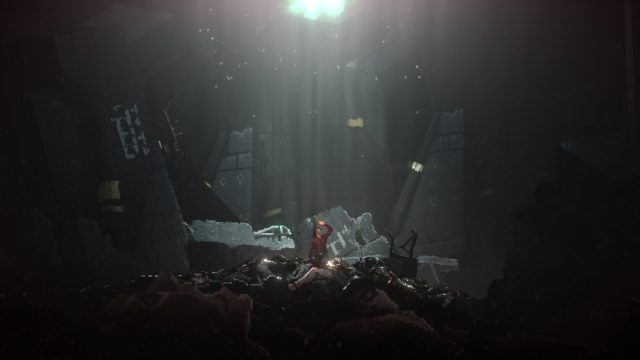
Alex: Could you give me a little background on the game’s development? How long have you actually been working on REPLACED?
Studio co-founder Igor Gritsay: We’ve been in development since mid-2018, though back then it was merely an idea when we were searching for things that we could actually do. Before us there was this trailer for Atomic Heart, and it’s also made by the new studio, and of course, we could not tackle that as our debut project even though our guys come from game development, most of their work is on mobile. So we thought such kind of project was out of our reach and basically, we thought, okay, we should do something of that quality, but at the same time, something within our possibilities. So, we are thinking about what we can do, and when we were looking through our backlog of ideas, we thought that, okay, cinematic platformer is the way to go for us because while it isn’t simple to make, it was something we were capable of.
Then we had this idea we wanted to investigate — how could an AI integrate with a human? This was like the core idea that we wanted to develop and base our script around. So this was the starting point, and during the first six months or so we were just working on a prototype. I don’t even think that we have those things in the project anymore. But yeah, it was quite a view, just grey blocks and, say, a 10×10 area with characters walking around. But, hey, look where we are now!
Anyway, this was our initial idea –to make a cinematic platformer with beautiful visuals because if we can’t deliver, for example, a cool-looking third-person shooter, for example, I think that it’s within our capabilities to make quality looking and great looking cinematic platformer.
So we were looking at the games we love, the games we adore. Our first iteration of the game was much more, much closer to the classics, like Flashback or Out of this World. We made our first demo in 2019, and we went to several trade shows with this demo and they put the overall reception was really positive.
And it’s very stressful when you’re standing right next to an overheating laptop, and you look at maybe 100 people playing, and some of them just stop mid-session. And you’re so frustrated and they just go and don’t tell you anything. And you think what was the problem? What’s wrong with it? Even though 90 + % of people actually finished the demo and said that it was great, a negative reaction always has this effect.
Later, after those several trade shows, we thought to ourselves, all right, that was cool, but we don’t think that we will be able to create a whole game based on this gameplay because, well, in a classic cinematic platformer it’s all about content. And with the modern quality of content, the modern price for creating visual content, we understood that we just cannot allow ourselves to create a whole game without any substantial gameplay. So, we went back to the lab and thought, okay, how we can iterate upon this? And we were sitting with our favorite games, and looking at what’s cool there and what we can implement in ours and refine as our own thing.
What were the design inspirations behind the project that helped to shape its aesthetic, style, and gameplay?
Studio co-founder Igor Gritsay: So regarding the combat system, we were heavily inspired by the Batman series. I finished all of those games and they’re really perfect, and I really like the combat within those games. So we took inspiration there because of this fluid sense of flow and, you know, it just feels that everything is right and the combat feels natural. So, this is what we were trying to achieve. We weren’t looking for hardcore 2D games, like Hollow or Salt and Sanctuary.
We were looking for a more, not casual, but, you know, a cool-feeling experience that you have to master, but you don’t have to cry and blood and sweat while you’re playing. On the other side, we also implemented traversing which was inspired by games such as Prince of Persia, the Ubisoft ones, which were made trilogy which was made in the 2000s, including a Sands of Time. Also, the Uncharted series.
Basically, for us, platforming is there not so much as a challenge but a way to give an exposition for beautiful locations; and since I’m really proud of our division, they deserve that their creation has great exposition and that players can have a proper taste of what we’ve done and what we are, what our artists made.
In terms of aesthetics, our initial inspirations were more movie-oriented, such as Blade Runner, and 2049.
Game director Yura Zhdanovich: A lot of cyberpunk games or sci-fi games that tackle the more grounded type of action will be inspired by Blade Runner, but in our case, the gameplay was actually inspired a lot by the movie Upgrade, which was a really interesting take on especially the combat sequences. It is a really interesting take on a mechanical thing in a human body — how it will behave, how it would look like. I was very inspired by it; I’ve watched it like 10 times or so, and I watched it like a lot when we were looking for inspiration for combat moves or something. It really was a breakthrough for us in terms of how we should tackle combat and a more grounded game.
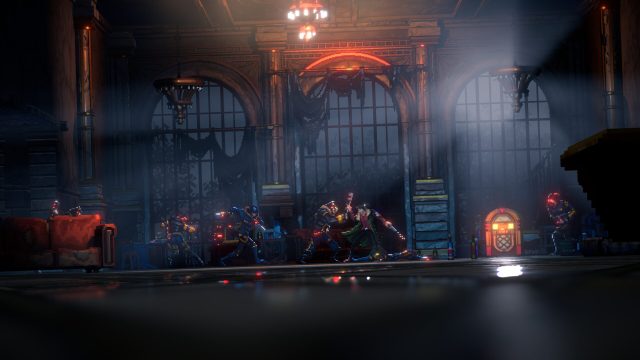
Speaking about combat, as Igor mentioned, we were inspired by the Batman series, but one of the key things we wanted to do was to implement interesting gameplay without ruining the whole seriousness of what’s going on — there are no triple jumps or plunging attacks, for example. And at the same time, it was quite a natural way for us because we’re so much into animation. And as you have seen in the trailer we are trying to do this combat as much physical as possible. As much animated as possible, and contextual as possible.
So everything you do in the game we try to make it physical, so you feel this kind of interaction. It’s one of the key things we’re trying to achieve with it — being very grounded but at the same time still fun to play.
Alex: There are a lot of side-scrolling indie games these days, so do you think it’s important for an indie game to stick out these days? What challenges have you faced trying to make such a complex style work?
Studio co-founder Igor Gritsay: “When we were thinking about what should we do and how we should present it, the obvious choice for us was to do pixel art because, in addition to the lower cost, the general consensus is that indie titles are adored by people who love pixel art and vice versa. But then we thought that the usual pixel art wouldn’t be enough and that we wanted to do something more interesting with it.

And when I started experimenting with some other things, then came along the trailer for The Last Night which was really great, and it showed off a really interesting type of art direction — how one can make modern tweaks on the 2.5D formula, which has actually been around for years. Many people, for example, don’t remember, but there was a great game Disney’s Hercules for PS1. Right now there are a lot of games trying to go back to this kind of 2.5D aesthetic.
It was very interesting for us to do it ourselves and to make some adjustments, some of the tweaks, some stylistic choices we want to create because as you have seen in the trailer our game is not classic, super futuristic cars kind of cyberpunk. It is more on the Retro side.
It’s really a no-brainer that when you want to make a story about artificial intelligence, you definitely go sci-fi, but we want wanted to give some kind of a unique spin on it. When we were young there was a lot of like cult following in the ’90s here, especially in the post-USSR, with the retro sci-fi movies, like RoboCop, for example, and we had this feeling, you know, that we want to do a homage to this because we really like those aesthetics of how the future was depicted back then and not right now. We wanted to go in a little bit of a different direction, more on of the side of a futurist of that time who was like designer thinking about how things would be like ten and twenty years.
Alex: So traditionally, stories told within a dystopian and particularly cyberpunk aesthetic are typically centered around a political message of some sort — this was one of the criticisms of CDPR’s Cyberpunk 2077 was that it looked like a very pretty cyberpunk game but it didn’t feel like one, it wasn’t saying anything in particular about modern culture and maybe capitalist society, transhumanism, artificial intelligence, etc. Does REPLACED have some sort of message –political or otherwise– that it is trying to convey?
Studio co-founder Igor Gritsay: Lots of things that happened in the world of our game is alternate history. Basically, modified events that actually happened in the real world, such as the Trinity test for the nuclear bomb, and stuff like this. In our world, the U.S. gets much more dystopian than it actually is in reality. I think that we definitely have a political message in our game because, well, living in a sort of half dictatorship (in Belarus) has inevitably had an impact on us.
We have our post-Soviet heritage and things happening in our country right now. Of course, in our game we are not talking about Belarus, but, you know, [people who live in] the post-soviet are somehow attracted to dystopia in pop culture (laughs), which is really strange — as if we don’t have enough of it in reality! The most popular book here is 1984.”
One of our main world-building themes REPLACED is that everything is based on bio-engineering and organ transplantation. This is how good deeds eventually become something horrific and we will discuss this topic in the game. I think the main point of our game is still the thing that we are trying to discuss is can artificial intelligence be human? And if so then what is the outcome of it?
Game director Yura Zhdanovich: I would say there are two core themes: one is artificial intelligence and what would artificial intelligence do when it is in the context of a living being, rather than a supercomputer that has learned to be moral — when it faces humanity’s downsides and having to make hard choices that we ultimately always destroyed for, as we have seen in films such as Terminator.
The second one is, when we’re talking about the political situation, when you design a dystopia you usually go to roots, you’re either going to go with Orwell or Huxley. So we decided to go with Orwell, because, as Igor has said, we are somewhat attracted to him. And as we have been talking about with our narrative team about this, one of the core themes is what would happen –and this is actually very applicable to what is happening in the world today– if you start to give out your freedom piece by piece for somewhat of a better life or protection or anything else that makes you more comfortable and more controlled?
In our world, it is bio-transportation that is kind of a main threat throughout the alternate history of our game — started out as a good thing before people realized the potential money involved, and so they pulled the “don’t be evil” trick, but then became evil.
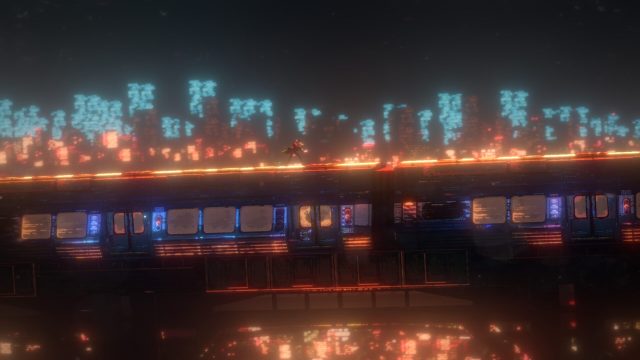
I think that’s the main political point of our game. It definitely will touch a lot of other aspects and issues that are sensitive topics in modern media and modern discussions around those things, but I think it is subtle. It will be good enough [for us] if people play the games and decide for themselves on some of those complex topics we want to explore because there are definitely some that are very empathetic to things that are happening right now. We’re really interested to how people will react to this.
Alex: And lastly, I wanted to ask about your decision to go with Xbox Game Pass as a platform, how did the relationship with Microsoft come about. What did you consider the pros and cons of going with them rather than trying to sell individual copies across multiple platforms? Is the deal a timed exclusive?
Studio co-founder Igor Gritsay: We don’t have plans at the moment for other platforms other than Xbox and PC.
The biggest part of the partnership for us is that Microsoft actually cares about the indie market. Otherwise, well, there would be much fewer games on all platforms. They really give a chance to small studios to actually produce something and provide marketing awareness to people. I would say that for indie studios, I can’t even think of a con (with partnering with Microsoft) because they provide funding and marketing reach.”
As for Game Pass, it allows more people to learn about the game, and actually play the game! Because there is frequently this situation for many players where they will see a game in the store and they want it, but at the same time it is $30, $60, or even more, and so you maybe Wishlist it, and then you usually forget.
However, with Game Pass you just press a button and install. Of course, sometimes the possible con of this is that, you know, people might be too overflowing with games and so each game gets less attention. Still, equally, it is a chance for those games to shine. In other situations they might otherwise be drowned by thousands of other games.
Game Pass allows us and many other developers to actually deliver our project to people. Also, from what I heard, Game Pass also boosts sales, but we’ll see about that! To summarize, it’s a win, win situation for us.“
——
REPLACED is set to launch in 2022 on Xbox and PC platforms. Keep an eye on the game’s official website here, and check out the E3 2021 trailer if you haven’t already.

